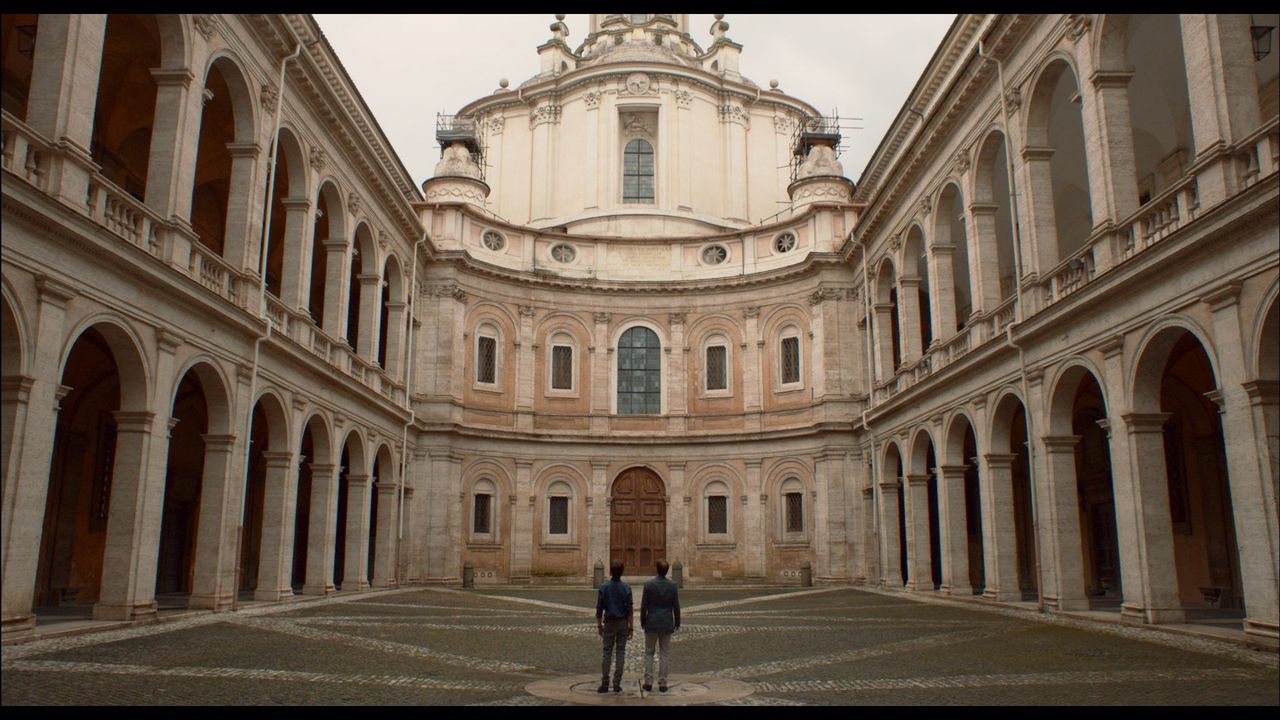The second part of The Concordian’s coverage of one of Montreal’s most ambitious film festivals
The Festival du Nouveau Cinema (FNC) just ended and brought with it an impressive selection of movies. Even if a film festival is always around the corner in Montreal, we should all aim to see as many film as possible. Although The Concordian was not able to see every film shown at the FNC, here are some of our favourite–and least favourite–picks from the second week of screenings.
Next to her
by Frédéric T. Muckle

Have you ever taken care of someone? For informal caregivers, helping is a very demanding way of life. Next to her, Asaf Korman’s first feature film, smartly tackles this touching issue. It is the story of Chelli and her mentally challenged little sister Gabby; it is also the tale of two young women ultimately looking for some love and comfort.
Following mostly Chelli, Korman gives us a peek into the inner conflict of this caring young woman. This portrayal of her love/hate relationship with her sister is both troubling and touching. She tries to protect Gabby from the world. Still, she seems to long for a normal life in which she only had herself to care for. Who could blame her? The courage and hardships of informal caregivers are thoughtfully portrayed in the repeating of mundane moments between these two codependent sisters. One of Chelli’s most interesting facets is that she actually needs Gabby as much as Gabby needs her. Even with a boyfriend who is at first very understanding and kind to the intimate duo, Chelli seems incapable of letting her go. Korman’s wife Liron Ben-Shlush, who wrote the screenplay for Next to Her, beautifully plays this nuanced character.
Korman’s movie prevails in the little details; in the subtle smiles and furtive looks, in a polished portrayal of a close relationship not only between two sisters, but also of love and hate itself–emotions that are often closely related.
She’s lost control
by Frédéric T. Muckle

Having sex for money: not so respectable in our traditional society, right? Still, a movement that started in the ‘70s created what is now known as “sexual surrogates.” This job, that should not be described by the judgmental puritans who still exist in today’s modern world, is actually a serious and compassionate occupation. These people, mostly women, act as a professional partner and therapist to people in need of sexual therapy. These people are usually not able to have what most people would consider a normal relationship with someone.
Anja Marquardt tackles this controversial and complex topic in She’s Lost Control, starring the talented Brooke Bloom as Ronah, the main protagonist who happens to be a sexual surrogate. This subject could have been painted crudely in broad strokes, but luckily She’s Lost Control effectively focuses on more than Ronah’s unusual occupation.
The movie makes you feel Bloom’s character’s array of nuanced emotions while accompanying her in her everyday tasks, some dramatic and unexpected events, and also her uncommon work. As the title suggests, everything finally ends up being too much for the caring sensitive Ronah who, in the end, just wants to help people. The descent is brutal and swift. The one thing that disappoints in She’s Lost Control is its actual conclusion. During the whole movie you are following this interesting character and emotionally watching as her life unfolds, but the ending simply leaves you with a feeling of emptiness. This movie needed more than this unsatisfactory ending. What could have been a really good movie sadly ended up being average.
The Price We Pay
by Zach Goldberg

Last Wednesday, director Harold Crooks’ newest work, The Price We Pay was shown at Concordia University. The screening was held at the H-110 theatre, and was a joint operation between Cinema Politica and the FNC. Crooks’ newest film covers the global financial sector, tackling big-business tax avoidance and offshore finance. Like his last film, Surviving Progress, The Price We Pay is based on a thick, content-laden novel.
The substantial breadth of the source text, combined with the dense, technical nature of the topic, created what would seem a daunting task for a documentarian. However, the film handled a difficult topic with surprising clarity, utilizing helpful graphics and clever, often comedic voice-overs to make what has become an insider trade accessible to a wider audience.
Beginning at the economic boom of the Reagan administration, the film walks the viewer through the development of the laws that are currently depriving governments of trillions of dollars every year. The Price We Pay pulls aside the curtains of technical jargon and insider information on one of the most daunting aspects of global finance today, being at once a harsh indictment of not only corporations, but the governments that harbour them. Crooks’ new film has only further solidified him as one of the great documentarians of our time, firmly placing him amongst the likes of Michael Moore and Josh Fox.
La Sapienza
by Erdene Batzorig

Eugène Green’s drama La Sapienza explores withered love, harbored feelings and the struggles of midlife crisis. The dialogue-heavy film included unexpected, offbeat quips that had the audience in good humour.
Alexandre Schmidt who admires 17th century Roman architect Francesco Borromini, leaves his day-to-day life in France and travels to Switzerland and Italy to revive his dormant project on Borromini. He travels with his wife, Aliénor, to Stressa where they meet a young architect student Goffredo and his sister Lavinia. Between the four of them and their interactions with each other, they find answers that they did not know they were looking for.
Throughout the movie you see a change in the way the characters relate to one another. At the beginning, the lack of physical interaction and the minimal, rigid conversations reflect the state of the relationships. The addition of Lavinia and Goffredo has a surprising effect on both Alexandre and Aliénor, as they both rediscover the meaning of life. The natural curiosity and the naivety of the young siblings has them reflecting on their lives and recounting stories from past.
Some parts of the film are quite drab with the endless talks and slow pace, but the stellar performances by Fabrizio Rongione (Alexandre), Christelle Prot Landman (Aliénor) and the rest of the cast ultimately bring you back to the film.
Green has done a fine job of writing provoking dialogues and creating an aesthetically beautiful film. It may not be for everyone, but at the end you are sure to come out with something to think about and reflecting on your own life.




